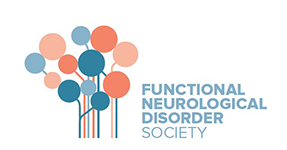Lectures
Psychological assessment and formulation of FND
Presenter
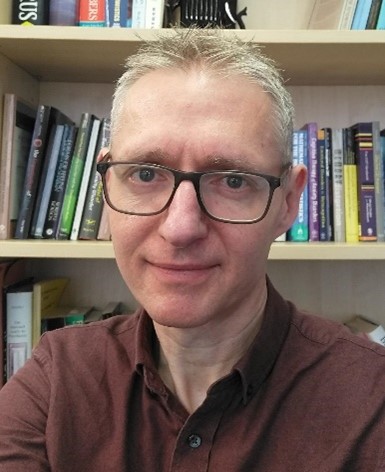 Richard J Brown is Professor of Clinical Psychology and Head of the Division of Psychology and Mental Health at the University of Manchester, UK. He is also Honorary Consultant Clinical Psychologist with Greater Manchester Mental Health NHS Foundation Trust, where he runs an outpatient psychology service for people with Functional Neurological Disorders(FND). He has written numerous theoretical, empirical and clinical papers on somatic symptom reporting, dissociation and functional neurological disorder and won the British Psychological Society May Davidson Award in 2012 for his work in this area.He is a founding member of the Functional Neurological Disorder Society(FNDS) and the UK special interest group in Psychodynamic Interpersonal Therapy (PIT-UK).He also sits on the education committee of FNDS and the medical advisoryboard of FND Hope UK.
Richard J Brown is Professor of Clinical Psychology and Head of the Division of Psychology and Mental Health at the University of Manchester, UK. He is also Honorary Consultant Clinical Psychologist with Greater Manchester Mental Health NHS Foundation Trust, where he runs an outpatient psychology service for people with Functional Neurological Disorders(FND). He has written numerous theoretical, empirical and clinical papers on somatic symptom reporting, dissociation and functional neurological disorder and won the British Psychological Society May Davidson Award in 2012 for his work in this area.He is a founding member of the Functional Neurological Disorder Society(FNDS) and the UK special interest group in Psychodynamic Interpersonal Therapy (PIT-UK).He also sits on the education committee of FNDS and the medical advisoryboard of FND Hope UK.
Lecture Description
This lecture serves as an introduction to the curriculum, providing a general overview of psychological assessment and formulation in people with FND. It assumes that viewers will already be familiar with how the FND diagnosis is made and communicated, as well as appropriate language to use with this patient group. It begins with a brief discussion of how to engage people in the assessment before focusing on the issue of psychological heterogeneity in FND and the wide range of issues that may need to be considered. Information is then provided about assessment of trauma and adversity, dissociation, mood/anxiety and autonomic arousal, emotional suppression, interpersonal relationships and somatic symptom reporting in FND. The focus then turns to formulation, including the 3Ps model, core theoretical concepts and common formulation narratives that may be of use. This information can then be supplemented with more detailed information about assessment and formulation linked to particular treatment approaches presented elsewhere in the curriculum.
Learning Objectives
- To develop knowledge about the psychological diversity of people with FND.
- To develop knowledge about the key areas for psychological assessment in FND.
- To develop knowledge about common formulation concepts and narratives that may be used as a bridge into psychological treatment for FND.
General principles of psychotherapy for functional seizures
Presenters
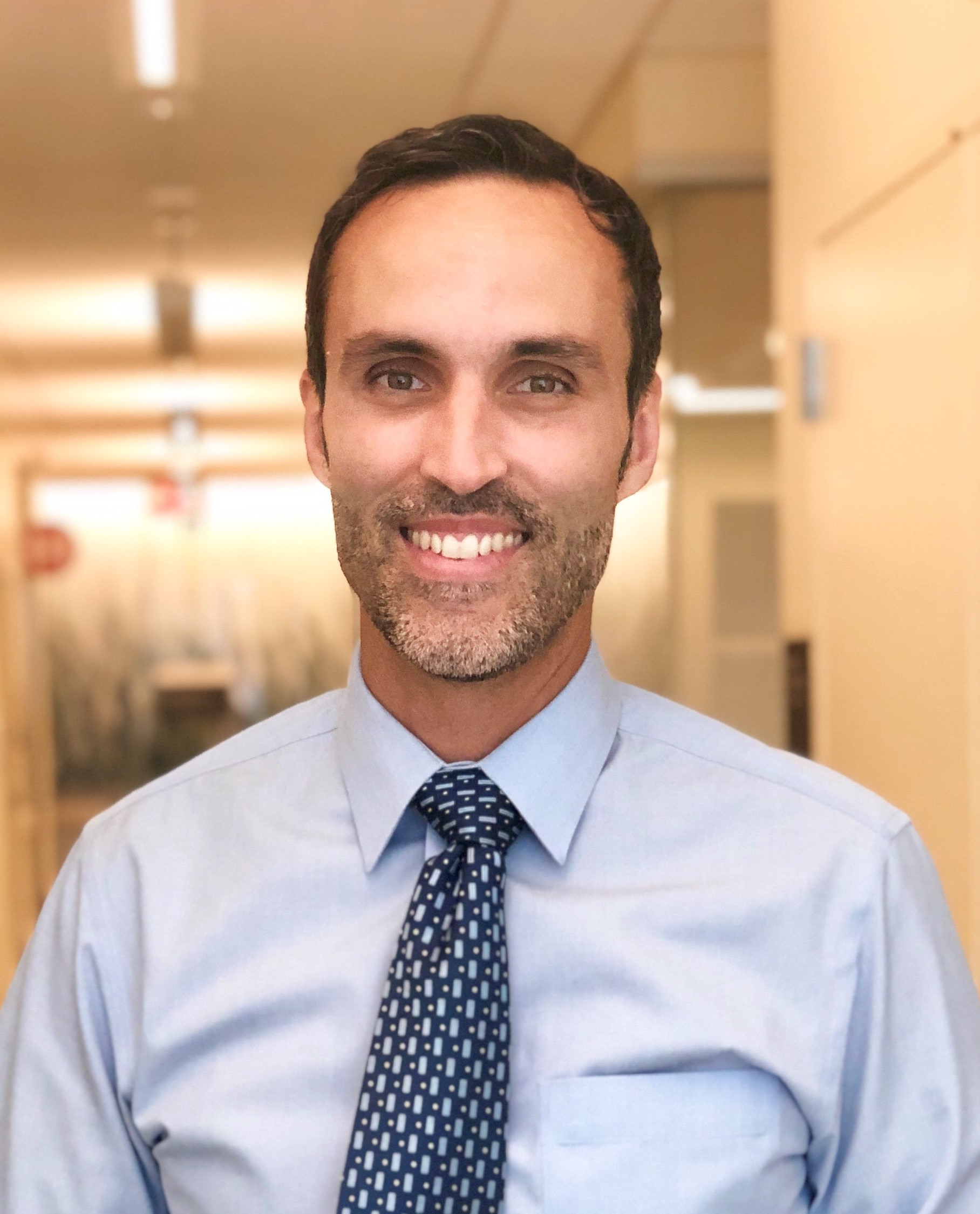 Gaston Baslet, MD completed medical school in Buenos Aires, Argentina and his training in psychiatry at the University of Illinois at Chicago. Dr. Baslet is currently chief of the division of neuropsychiatry, co-director of the Center for Brain/Mind Medicine and co-director of the neuropsychiatry and behavioral neurology fellowship training program at Brigham and Women’s Hospital in Boston, Mass, USA. He is also associate professor of Psychiatry at Harvard Medical School.
Gaston Baslet, MD completed medical school in Buenos Aires, Argentina and his training in psychiatry at the University of Illinois at Chicago. Dr. Baslet is currently chief of the division of neuropsychiatry, co-director of the Center for Brain/Mind Medicine and co-director of the neuropsychiatry and behavioral neurology fellowship training program at Brigham and Women’s Hospital in Boston, Mass, USA. He is also associate professor of Psychiatry at Harvard Medical School.
Dr. Baslet leads a clinical-research program on functional neurological disorder at Brigham and Women’s Hospital and has conducted clinical research on treatment outcomes in functional seizures and other subtypes of functional neurological disorder. Dr. Baslet is also interested in promoting the integration of neuroscience into medical education and is the director of medical student education in Psychiatry at Brigham and Women’s Hospital.
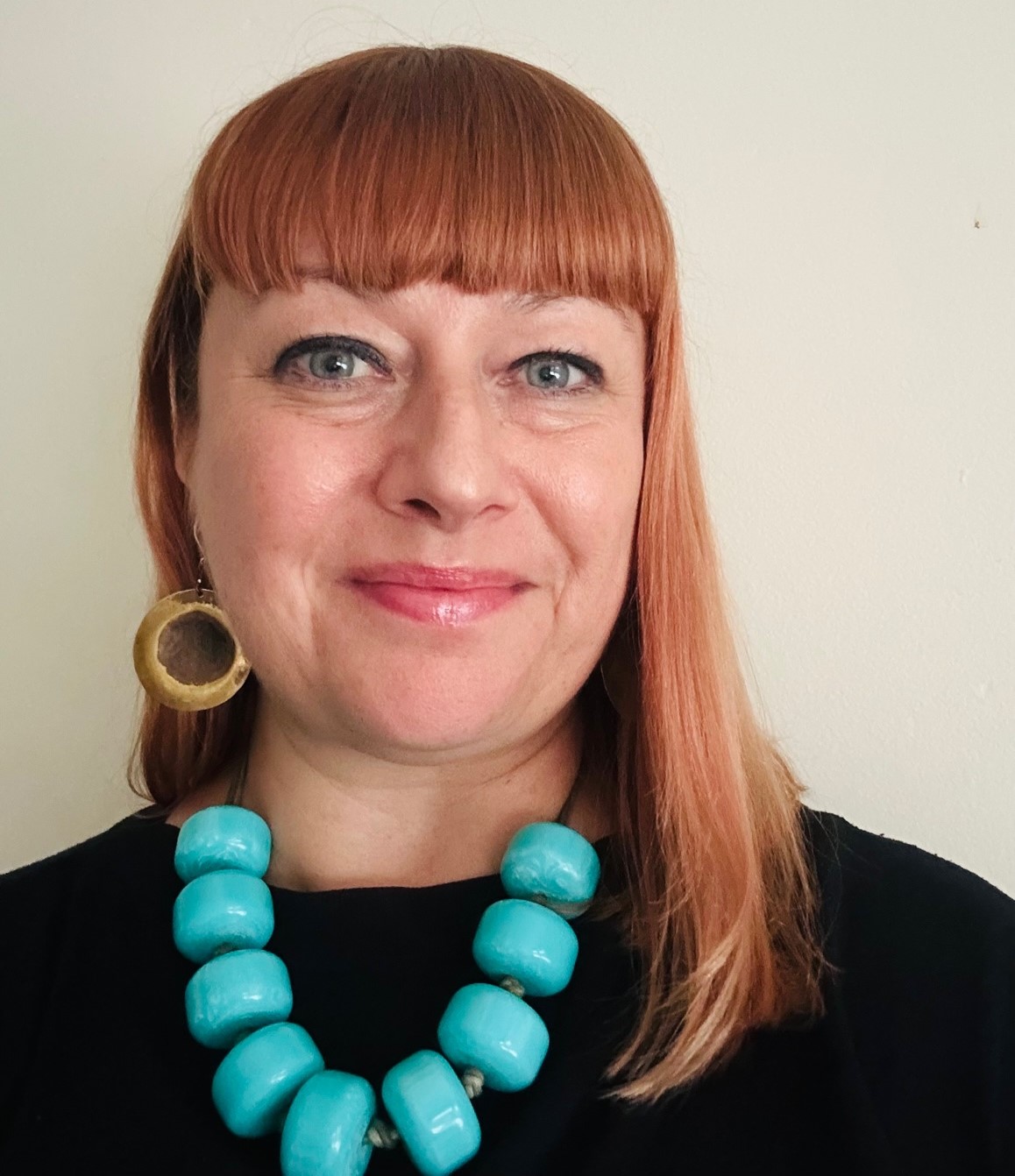 Margaret Latawiec, MSW, LICSW obtained her Master's in Social Work at Simmons College in Boston. She joined Brigham and Women’s Hospital Division of Neuropsychiatry in 2016. She has been actively involved with the FND team and in the psychotherapy treatment of patients with FND since joining Brigham and Women’s Hospital.
Margaret Latawiec, MSW, LICSW obtained her Master's in Social Work at Simmons College in Boston. She joined Brigham and Women’s Hospital Division of Neuropsychiatry in 2016. She has been actively involved with the FND team and in the psychotherapy treatment of patients with FND since joining Brigham and Women’s Hospital.
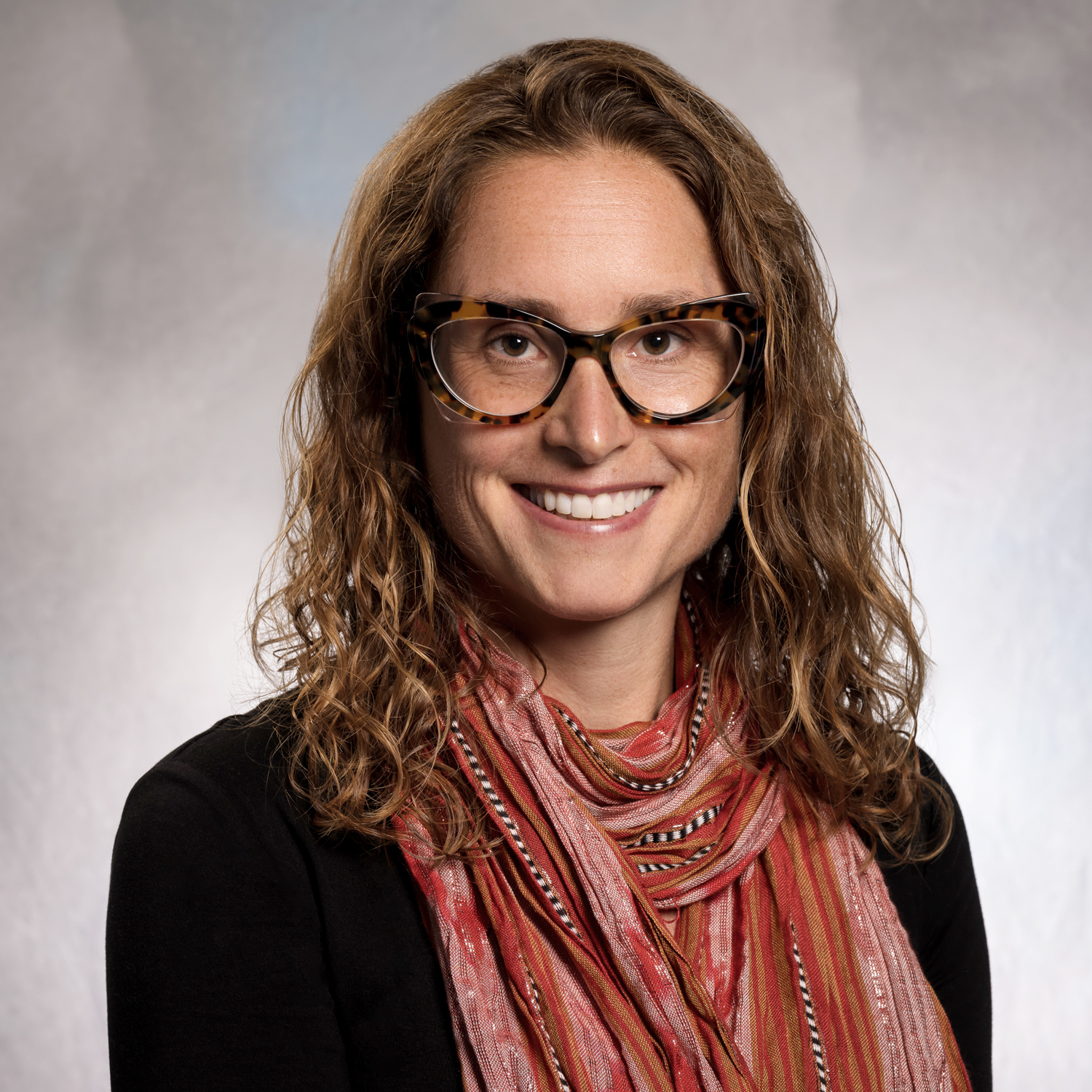
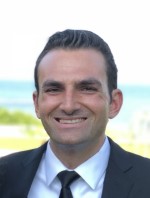 Robert Ridlon, MSW, LICSW obtained his masters in social work degree from the University of New England in Portland, ME. He joined the Brigham Psychiatric Specialties team at Brigham and Women’s Hospital in 2015 and has been actively involved in the psychotherapy treatment of patients with FND since 2015. He specializes in treating psychosis, mood disorders, and anxiety disorders. He has received training in Acceptance and Commitment Therapy, Behavioral Activation, Cognitive Behavioral Therapy, Mindfulness Based Therapy.
Robert Ridlon, MSW, LICSW obtained his masters in social work degree from the University of New England in Portland, ME. He joined the Brigham Psychiatric Specialties team at Brigham and Women’s Hospital in 2015 and has been actively involved in the psychotherapy treatment of patients with FND since 2015. He specializes in treating psychosis, mood disorders, and anxiety disorders. He has received training in Acceptance and Commitment Therapy, Behavioral Activation, Cognitive Behavioral Therapy, Mindfulness Based Therapy.
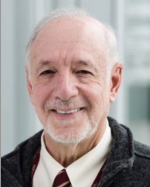 Jeffrey Robbins, MSW, LICSW is a graduate of Smith College School For Social Work. He has been with the Department of Neurology at Brigham and Women’s Hospital for the past 25 years and the Functional Neurological Disorder team since its inception. His areas of clinical interest include his longstanding work with Alzheimer’s patients culminating in the development of the National Alzheimer’s Buddies non-profit which he founded in 2013.
Jeffrey Robbins, MSW, LICSW is a graduate of Smith College School For Social Work. He has been with the Department of Neurology at Brigham and Women’s Hospital for the past 25 years and the Functional Neurological Disorder team since its inception. His areas of clinical interest include his longstanding work with Alzheimer’s patients culminating in the development of the National Alzheimer’s Buddies non-profit which he founded in 2013.
Lecture Description
This lecture offers a general framework for psychotherapy for functional seizures, irrespective of specific psychotherapy modality. Specific tools for symptom monitoring and seizure management (in session and outside of session) are presented.
Learning Objectives
The objectives of this presentation are for learners to:
- set up a collaborative psychotherapy framework as an essential component of the treatment of functional seizures.
- incorporate a symptom monitoring tool as part of the psychotherapy process.
- list steps and tools that can help with management of functional seizures during a therapy session and for the patient to use when experiencing a functional seizure.
Brief psychoeducational interventions and self-management
Presenter
 Fiona Summers is a Clinical Neuropsychologist who completed her degrees at the Universities of Aberdeen and Edinburgh. She has been employed by NHS Grampian, Scotland, since 2000 where she works in the Clinical Neurosciences service at Aberdeen Royal Infirmary. Fiona works both with inpatients and outpatients with a wide range of neurological disorders and has a particular interest in the treatment and development of pathways for those with Functional Neurological Disorder. She has several weekly outpatient clinics which are concerned with aiding the diagnosis of patients presenting with a wide range of disturbances of memory, reasoning and/or concentration and other cognitive functions.
Fiona Summers is a Clinical Neuropsychologist who completed her degrees at the Universities of Aberdeen and Edinburgh. She has been employed by NHS Grampian, Scotland, since 2000 where she works in the Clinical Neurosciences service at Aberdeen Royal Infirmary. Fiona works both with inpatients and outpatients with a wide range of neurological disorders and has a particular interest in the treatment and development of pathways for those with Functional Neurological Disorder. She has several weekly outpatient clinics which are concerned with aiding the diagnosis of patients presenting with a wide range of disturbances of memory, reasoning and/or concentration and other cognitive functions.
Fiona also works in the rehabilitation of patients with a range of brain disorders and injuries that involve significant changes in lifestyle and quality of life. This includes working with families and carers as well as providing advice to therapy and community staff involved in the care of this patient group. She enjoys working together with patients in developing psychological formulations and agreeing goals and treatment plans.
Her role also involves conducting research and teaching. Ongoing research projects include the running of groups for those with FND. Fiona is also involved with a number of service development initiatives including developing guidance for the Scottish Government on appropriate services for those with FND and developing pathways locally. She is the Director for Scotland of the Association of Clinical Psychology (ACPuk) and a Graduate Member of the British Psychological Society. Fiona is also on the Specialist Register of Clinical Neuropsychologists and an examiner of the Qualification of Clinical Neuropsychology and for the Clinical portfolio for MSc Clinical Neuropsychology/Pg Cert at the University of Glasgow.
Lecture Description
This lecture describes a practical approach to brief intervention, psychoeducation and group treatment for FND.
Learning Objectives
To provide a framework for:
- a practical and brief intervention for the treatment of FND
- supporting patients' understanding of FND and the role of psychology
- linking somatic symptoms to psychological functioning
- understand techniques for directed and supported self-management
- group Treatment – face to face and online
- accessing community support.
Family Treatment
Presenter
 Julia Doss, PsyD, is a pediatric psychologist, and founder of Doss Clinic of Health Psychology. She is a consultant for the Children’s Hospitals and Clinics of Minnesota for the past 16 years. Her clinical and research focus has been devoted to working with children with epilepsy, their comorbid emotional and behavioral disorders, and to patients with psychogenic non-epileptic seizures. Diagnosis and treatment of youth with non-epileptic seizures is her specialization. She has been a chair of the Pediatric Non-epileptic Seizure SIG at the American Epilepsy Society. She is currently a steward for the NINDS/NIH task force for comorbidities in epilepsy for the past 5 years, from which recommendations were presented to congress to assist in determining funding for research in this area. She was involved in the first pediatric multisite study of youth with psychogenic non-epileptic seizures. She has co-authored two books on treatment of PNES, one recent titled the Psychogenic Non-Epileptic Seizures Pocketbook published in 2023. She presents nationally and internationally on Functional Neurological Disorder and Psychogenic Nonepileptic Seizures.
Julia Doss, PsyD, is a pediatric psychologist, and founder of Doss Clinic of Health Psychology. She is a consultant for the Children’s Hospitals and Clinics of Minnesota for the past 16 years. Her clinical and research focus has been devoted to working with children with epilepsy, their comorbid emotional and behavioral disorders, and to patients with psychogenic non-epileptic seizures. Diagnosis and treatment of youth with non-epileptic seizures is her specialization. She has been a chair of the Pediatric Non-epileptic Seizure SIG at the American Epilepsy Society. She is currently a steward for the NINDS/NIH task force for comorbidities in epilepsy for the past 5 years, from which recommendations were presented to congress to assist in determining funding for research in this area. She was involved in the first pediatric multisite study of youth with psychogenic non-epileptic seizures. She has co-authored two books on treatment of PNES, one recent titled the Psychogenic Non-Epileptic Seizures Pocketbook published in 2023. She presents nationally and internationally on Functional Neurological Disorder and Psychogenic Nonepileptic Seizures.
Lecture Description
This lecture describes an approach for working with the families/caregivers of people with FND following initial diagnosis, outlines short-term treatment goals and strategies, and describes long-term (post symptom improvement) concerns to be address with the family.
Learning Objectives
At the end of the lecture, attendees will be able to:
- develop a plan with patients for return to work or school with the FND diagnosis.
- assist the patient in symptom management.
- pace with the patient/family so that symptoms will begin to resolve before address more underlying struggles.
Applying CBT concepts to FND
Presenter
 Killian Welch is a Neuropsychiatrist working in Edinburgh. Killian's work includes both neurobehavioural rehabilitation (much in an inpatient setting) as well as outpatient neuropsychiatry clinics. He trained in CBT and has been incorporating these approaches into the treatment of patients with FND for many years.
Killian Welch is a Neuropsychiatrist working in Edinburgh. Killian's work includes both neurobehavioural rehabilitation (much in an inpatient setting) as well as outpatient neuropsychiatry clinics. He trained in CBT and has been incorporating these approaches into the treatment of patients with FND for many years.
Lecture Description
This talk aims to describe how core CBT principles can be applied in the treatment of patients with FND. I have tried to frame this by relating treatment approaches to some of the core features of FND, hoping this assists in seeing how well CBT techniques seem to fit with the treatment needs of this patient group. The principles and treatment approaches covered will be familiar to anyone with experience in CBT, hopefully illustrating the relative ease with which it should be possible to increase access to treatment for this patient group.
Learning Objectives
- To appreciate why core features of FND suggest that CBT would be a well-suited treatment modality.
- To appreciate how CBT treatment techniques can be applied to patients with FND.
“Panic without panic,” fear avoidance and the CODES CBT protocol for treating dissociative seizures
Presenters
 Trudie Chalder is Professor of Cognitive Behavioural Psychotherapy at King’s College London and South London and Maudsley NHS Trust. She has worked as a clinician and a researcher around the area of persistent symptoms for over 30 years. She develops specific cognitive behavioural models for understanding and treating symptoms and associated disability. She evaluates the approaches within the context of randomised controlled trials in primary and secondary care. Her research involves investigating not only whether treatment works but how and for whom. Her work spans adolescents and adults.
Trudie Chalder is Professor of Cognitive Behavioural Psychotherapy at King’s College London and South London and Maudsley NHS Trust. She has worked as a clinician and a researcher around the area of persistent symptoms for over 30 years. She develops specific cognitive behavioural models for understanding and treating symptoms and associated disability. She evaluates the approaches within the context of randomised controlled trials in primary and secondary care. Her research involves investigating not only whether treatment works but how and for whom. Her work spans adolescents and adults.
Trudie has published around 400 articles. She was the President of the British Association of Behavioural and Cognitive Psychotherapy (BABCP) and is an honorary Fellow of the BABCP.
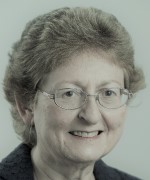 Laura H. Goldstein is Professor of Clinical Neuropsychology in the Psychology Department at the Institute of Psychiatry, Psychology & Neuroscience (IOPPN) and Honorary Consultant Clinical Psychologist at the Maudsley Hospital, South London & Maudsley NHS Foundation Trust, where she provides a clinical neuropsychology service to the Neuropsychiatry department. She is a Fellow of the British Psychological Society and has undertaken internationally-recognised research into the neuropsychological and broader psychological consequences of neurological disorders (especially motor neuron disease and epilepsy) and their comorbidities. She has been involved in evaluating psychoeducational and psychological interventions for people with epilepsy and has led an NIHR HTA-funded randomised controlled trial of cognitive behavioural therapy for patients with dissociative (non-epileptic) seizures (the CODES Trial). She has also collaborated on NIHR HTA-funded trials studying the use of Acceptance and Commitment Therapy for people with motor neuron disease and the use of specialist physiotherapy for adults with functional movement disorder. Previously, she played a major role in the post-qualification training of UK clinical neuropsychologists through leading PG Diploma courses at the Institute of Psychiatry over a 16-year period. She has contributed to the organisation and delivery of neuropsychology teaching over many years. Together with Jane McNeil she co-edited two editions of “Clinical Neuropsychology. A Practical Guide to Assessment and Management for Clinicians” as well The Clinical Psychologist's Handbook of Epilepsy: Assessment and Management. Routledge Press which she co-edited with Christine Cull. She received the 2021 British Psychological Society Division of Neuropsychology Barbara Wilson Lifetime Achievement Award.
Laura H. Goldstein is Professor of Clinical Neuropsychology in the Psychology Department at the Institute of Psychiatry, Psychology & Neuroscience (IOPPN) and Honorary Consultant Clinical Psychologist at the Maudsley Hospital, South London & Maudsley NHS Foundation Trust, where she provides a clinical neuropsychology service to the Neuropsychiatry department. She is a Fellow of the British Psychological Society and has undertaken internationally-recognised research into the neuropsychological and broader psychological consequences of neurological disorders (especially motor neuron disease and epilepsy) and their comorbidities. She has been involved in evaluating psychoeducational and psychological interventions for people with epilepsy and has led an NIHR HTA-funded randomised controlled trial of cognitive behavioural therapy for patients with dissociative (non-epileptic) seizures (the CODES Trial). She has also collaborated on NIHR HTA-funded trials studying the use of Acceptance and Commitment Therapy for people with motor neuron disease and the use of specialist physiotherapy for adults with functional movement disorder. Previously, she played a major role in the post-qualification training of UK clinical neuropsychologists through leading PG Diploma courses at the Institute of Psychiatry over a 16-year period. She has contributed to the organisation and delivery of neuropsychology teaching over many years. Together with Jane McNeil she co-edited two editions of “Clinical Neuropsychology. A Practical Guide to Assessment and Management for Clinicians” as well The Clinical Psychologist's Handbook of Epilepsy: Assessment and Management. Routledge Press which she co-edited with Christine Cull. She received the 2021 British Psychological Society Division of Neuropsychology Barbara Wilson Lifetime Achievement Award.
Lecture Description
This talk will outline data relating to the conceptualisation of “panic without panic” within dissociative seizures. It will then outline how the two-process Fear-Avoidance model can be important in understanding seizure occurrence and its relationship to avoidance. Finally, it outlines the key components of the CODES CBT approach for the treatment of dissociative seizures.
Learning Objectives
At the end of lecture, learners will be able to:
- list the reasons why “panic without panic” was considered to describe patients’ experiences of dissociative seizures
- describe the components of the CBT approach to treating dissociative seizures and describe the treatment structure
Prolonged Exposure (PE) for psychogenic non-epileptic seizures PNES (FDS) and post-traumatic stress disorder (PTSD)
Presenter
 Lorna Myers, PhD is the director of the Psychogenic non-epileptic seizure (PNES) Program at the Northeast Regional Epilepsy Group in New York and New Jersey, USA. She is a clinical psychologist and neuropsychologist and has been working with patients that present with seizures for over 20 years. Her research has been published in many peer-reviewed journals and she participated in the “Psychiatric comorbidities in epilepsy” SIG and the “PNES Workgroup” at the American Epilepsy Society. She also founded the PNES SIG at the International Society for the Study of Trauma and Dissociation (ISSTD). She is also the author of “Psychogenic non-epileptic seizures: A Guide,” a handbook for patients and loved ones. All royalties from the sales are donated to Epilepsy Alliance America to support a scholarship for adults diagnosed with PNES. In 2023, Dr. Myers published “The Psychogenic non-epileptic seizures Pocketbook” with her colleague, Dr. Julia Doss. The intended readers are clinicians who are treating their first patient with PNES and are seeking a concise source of clinical and practical information.
Lorna Myers, PhD is the director of the Psychogenic non-epileptic seizure (PNES) Program at the Northeast Regional Epilepsy Group in New York and New Jersey, USA. She is a clinical psychologist and neuropsychologist and has been working with patients that present with seizures for over 20 years. Her research has been published in many peer-reviewed journals and she participated in the “Psychiatric comorbidities in epilepsy” SIG and the “PNES Workgroup” at the American Epilepsy Society. She also founded the PNES SIG at the International Society for the Study of Trauma and Dissociation (ISSTD). She is also the author of “Psychogenic non-epileptic seizures: A Guide,” a handbook for patients and loved ones. All royalties from the sales are donated to Epilepsy Alliance America to support a scholarship for adults diagnosed with PNES. In 2023, Dr. Myers published “The Psychogenic non-epileptic seizures Pocketbook” with her colleague, Dr. Julia Doss. The intended readers are clinicians who are treating their first patient with PNES and are seeking a concise source of clinical and practical information.
Dr. Myers is a certified prolonged exposure therapist and clinical supervisor and has pioneered the use of PE for patients who carry a dual diagnosis of PNES and post-traumatic stress disorder (PTSD). Presently, she is the principal investigator (PI) of a randomized controlled trial that compares PE to a psychoeducational and skills building modality in adult patients with PNES and PTSD.
Lecture Description
This talk will provide a brief overview of PE and present the necessary modifications that are suggested when it is utilized to treat patients who are dually diagnosed with PNES and PTSD. Additionally, concerns psychotherapists might have regarding safety, limitations, and effectiveness of PE for the treatment of PNES will be addressed.
Learning Objectives
At the end of this presentation, learners will be better placed to:
- decide which patients with PNES would be appropriate to treat with PE
- list the modifications that are made to PE when working with patients who have PNES as well as PTSD.
Eye-Movement Desensitisation and Reprocessing Therapy (EMDR) for Functional Neurological Disorder (FND)
Presenter
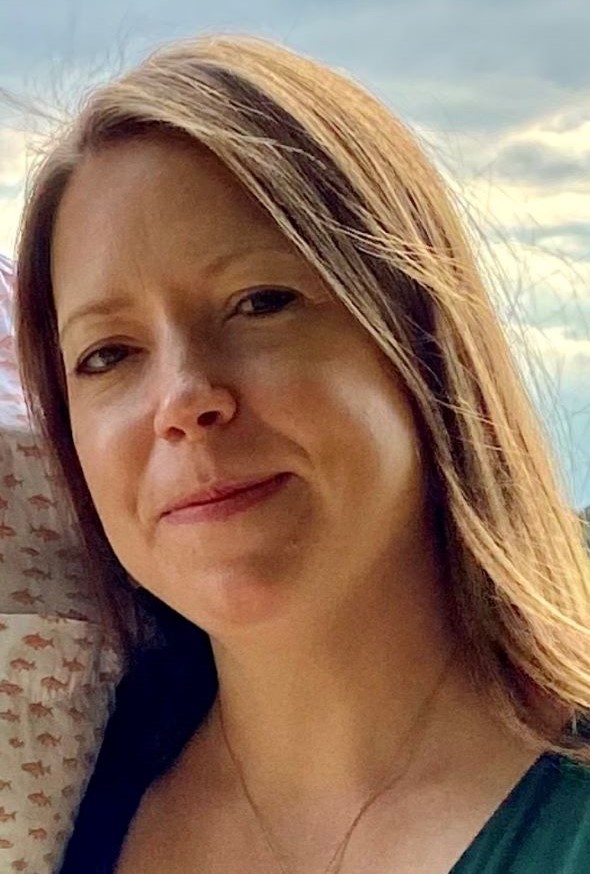 Sarah Cope is a clinical psychologist, accredited CBT therapist, and accredited EMDR therapist. She leads the Psychology provision within the Neuropsychiatry Service at St. George’s Hospital, London, UK; as well as working in private practice. She is the chief investigator of MODIFI, which is a National Institute for Health and Care Research (NIHR)-funded feasibility study examining Eye Movement Desensitisation and Reprocessing therapy (EMDR) for Functional Neurological Disorder (FND). Additionally, she is a co-investigator for the NIHR-funded feasibility study Acceptance and Commitment Therapy (ACT) for Functional Cognitive Disorder.
Sarah Cope is a clinical psychologist, accredited CBT therapist, and accredited EMDR therapist. She leads the Psychology provision within the Neuropsychiatry Service at St. George’s Hospital, London, UK; as well as working in private practice. She is the chief investigator of MODIFI, which is a National Institute for Health and Care Research (NIHR)-funded feasibility study examining Eye Movement Desensitisation and Reprocessing therapy (EMDR) for Functional Neurological Disorder (FND). Additionally, she is a co-investigator for the NIHR-funded feasibility study Acceptance and Commitment Therapy (ACT) for Functional Cognitive Disorder.
Lecture Description
This lecture describes EMDR therapy, the theory behind it and a brief overview of its current evidence-base. It introduces what EMDR therapy for FND can look like, using ideas from MODIFI, a current single site UK-based feasibility RCT examining EMDR for FND. It ends with an anonymised case example, reflections on limitations of EMDR for FND, and brief take home points.
Learning Objectives
At the end of this presentation, learners will be better placed:
- to understand what EMDR therapy is, and the rationale for using EMDR therapy for FND presentations
- to consider how to use EMDR therapy for FND presentations
Integrative mindfulness psychotherapy for FND
Presenters
 Niels Detert (BA (Hons), DClinPsych, AFBPsS) is a Consultant Clinical Neuropsychologist and lead for adult neuropsychology at the John Radcliffe Hospital in Oxford with special interests in Mindfulness and in Functional Neurological Disorders (FND). He has worked in particular with Mindfulness-based Cognitive Therapy to improve the management of stress and mental health problems in people with neurological and functional neurological disorders. He is chair of the FND workstream of the Division of Neuropsychology policy unit. He is the chair of the UKFND Network, an FND liaison group of representatives of UK professional and voluntary sector bodies and stakeholders. He is a member of the medical expert committee of the charity FND Hope UK.
Niels Detert (BA (Hons), DClinPsych, AFBPsS) is a Consultant Clinical Neuropsychologist and lead for adult neuropsychology at the John Radcliffe Hospital in Oxford with special interests in Mindfulness and in Functional Neurological Disorders (FND). He has worked in particular with Mindfulness-based Cognitive Therapy to improve the management of stress and mental health problems in people with neurological and functional neurological disorders. He is chair of the FND workstream of the Division of Neuropsychology policy unit. He is the chair of the UKFND Network, an FND liaison group of representatives of UK professional and voluntary sector bodies and stakeholders. He is a member of the medical expert committee of the charity FND Hope UK.
 Gaston Baslet, MD completed medical school in Buenos Aires, Argentina and his training in psychiatry at the University of Illinois at Chicago. Dr. Baslet is currently chief of the division of neuropsychiatry, co-director of the Center for Brain/Mind Medicine and co-director of the neuropsychiatry and behavioral neurology fellowship training program at Brigham and Women’s Hospital in Boston, Mass, USA. He is also associate professor of Psychiatry at Harvard Medical School.
Gaston Baslet, MD completed medical school in Buenos Aires, Argentina and his training in psychiatry at the University of Illinois at Chicago. Dr. Baslet is currently chief of the division of neuropsychiatry, co-director of the Center for Brain/Mind Medicine and co-director of the neuropsychiatry and behavioral neurology fellowship training program at Brigham and Women’s Hospital in Boston, Mass, USA. He is also associate professor of Psychiatry at Harvard Medical School.
Dr. Baslet leads a clinical-research program on functional neurological disorder at Brigham and Women’s Hospital and has conducted clinical research on treatment outcomes in functional seizures and other subtypes of functional neurological disorder. Dr. Baslet is also interested in promoting the integration of neuroscience into medical education and is the director of medical student education in Psychiatry at Brigham and Women’s Hospital.
Lecture Description
This lecture reviews general principles of mindfulness and the rationale to apply these in the treatment of FND. We then review practical mindfulness tools and approaches that can be incorporated during a course of psychotherapy for FND. Finally, evidence on the efficacy of a 12-session integrative mindfulness-based psychotherapy protocol is presented.
Learning Objectives
At the end of this presentation, learners will be better placed to:
- explain the rationale to use a mindfulness-based psychotherapy approach in FND.
- cite specific mindfulness-based tools that can be applied to emotion and cognitive processes in the service of addressing FND.
Adapting Dialectical Behavior Therapy (DBT) for FND Clients
Presenter
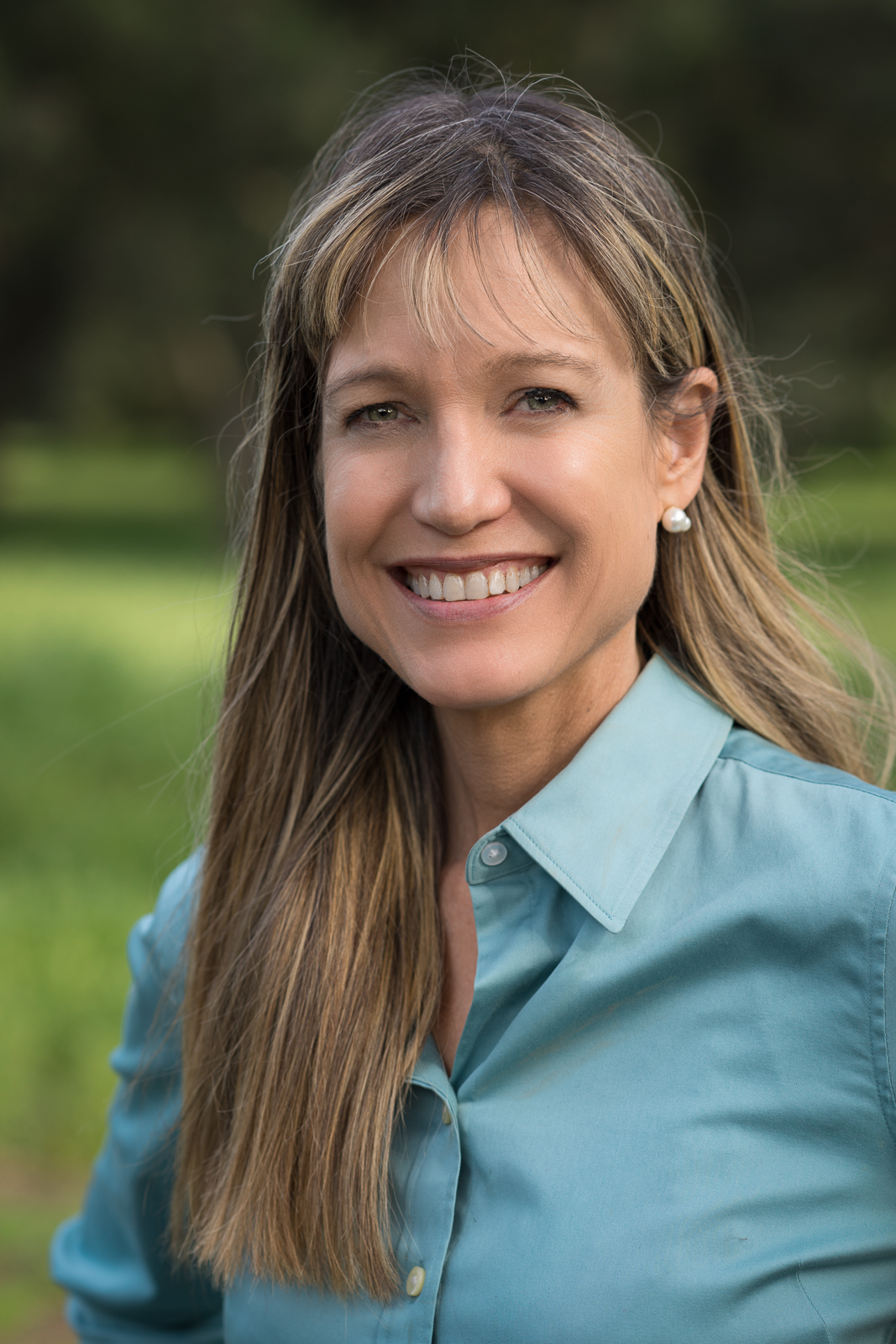 Kim Bullock, MD received her undergraduate degree with honors and distinction in physiology and psychology from the University of California, San Diego, Revelle College and her medical degree from George Washington University in Washington, DC. She completed an internship in internal medicine at Washington Hospital in D.C. and a psychiatry residency at Stanford University. She is triple board certified and a diplomat in the subspecialties of Behavioral Neurology and Neuropsychiatry and Lifestyle Medicine as well as being a DBT-Linehan certified clinician. She is currently appointed Clinical Professor in the Department of Psychiatry and Behavioral Sciences within Stanford’s School of Medicine. Dr. Bullock is the founder and Director of Stanford's Neurobehavioral Clinic and Virtual Reality & Immersive Technologies (VRIT) program and laboratory. She also is a leader and pioneer in telehealth services using XR. She has published many peer-reviewed articles and is a Cambridge and Oxford Press author on the subject of functional neurological disorders. Her primary clinical research interest is exploring the use of technology for trauma treatment and psychiatric illnesses involving disruption of bodily perception and function. She is currently focused on the use and dissemination of immersive technologies for telepsychiatry as well as its use in augmentation of physiotherapy, psychotherapy, and skills acquisition. She treats a multitude of illness domains including trauma, phobias, anxiety, pain, mood disorders, and somatic symptom-related disorders. She also provides support and connects researchers, providers, and developers of immersive technology through the Stanford Psychiatry Immersive Technology Consortium (SPIT-C). Dr. Bullock currently sees patients, teaches, and performs research. She takes a holistic, customized, and personal approach to each patient and encourages family and community involvement in the treatment process. She is intensively trained and teaches both cognitive behavior therapy and dialectical behavior therapy (DBT). She runs weekly DBT groups for friends and family, neuropsychiatric patients, and DBT graduates as well as delivers individual comprehensive DBT and CBT and virtual reality psychotherapies. She presents and speaks on the subject of virtual reality, DBT, and Functional Neurological Disorder internationally and locally.
Kim Bullock, MD received her undergraduate degree with honors and distinction in physiology and psychology from the University of California, San Diego, Revelle College and her medical degree from George Washington University in Washington, DC. She completed an internship in internal medicine at Washington Hospital in D.C. and a psychiatry residency at Stanford University. She is triple board certified and a diplomat in the subspecialties of Behavioral Neurology and Neuropsychiatry and Lifestyle Medicine as well as being a DBT-Linehan certified clinician. She is currently appointed Clinical Professor in the Department of Psychiatry and Behavioral Sciences within Stanford’s School of Medicine. Dr. Bullock is the founder and Director of Stanford's Neurobehavioral Clinic and Virtual Reality & Immersive Technologies (VRIT) program and laboratory. She also is a leader and pioneer in telehealth services using XR. She has published many peer-reviewed articles and is a Cambridge and Oxford Press author on the subject of functional neurological disorders. Her primary clinical research interest is exploring the use of technology for trauma treatment and psychiatric illnesses involving disruption of bodily perception and function. She is currently focused on the use and dissemination of immersive technologies for telepsychiatry as well as its use in augmentation of physiotherapy, psychotherapy, and skills acquisition. She treats a multitude of illness domains including trauma, phobias, anxiety, pain, mood disorders, and somatic symptom-related disorders. She also provides support and connects researchers, providers, and developers of immersive technology through the Stanford Psychiatry Immersive Technology Consortium (SPIT-C). Dr. Bullock currently sees patients, teaches, and performs research. She takes a holistic, customized, and personal approach to each patient and encourages family and community involvement in the treatment process. She is intensively trained and teaches both cognitive behavior therapy and dialectical behavior therapy (DBT). She runs weekly DBT groups for friends and family, neuropsychiatric patients, and DBT graduates as well as delivers individual comprehensive DBT and CBT and virtual reality psychotherapies. She presents and speaks on the subject of virtual reality, DBT, and Functional Neurological Disorder internationally and locally.
Lecture Description
This lecture is an introduction to adopting and adapting Dialectical Behavior Therapy (DBT) for clients with Functional Neurological Disorder (FND). Basic DBT principles, theory, and rational for applying this orientation to FND will be reviewed. Practical suggestions from over 15 years of applying this modality in practice will be reviewed.
Learning Objectives
At the end of this presentation, learners will be better placed to:
- describe the rationale for using Dialectical Behavior Therapy (DBT) in the treatment of Functional Neurological Disorder (FND).
- understand common FND specific therapy interfering behaviors and practical management solutions.
Psychodynamics aspects and treatment of FND
Presenters
 Richard J Brown is Professor of Clinical Psychology and Head of the Division of Psychology and Mental Health at the University of Manchester, UK. He is also Honorary Consultant Clinical Psychologist with Greater Manchester Mental Health NHS Foundation Trust, where he runs an outpatient psychology service for people with Functional Neurological Disorders(FND). He has written numerous theoretical, empirical and clinical papers on somatic symptom reporting, dissociation andfunctional neurological disorderand won the British Psychological Society May Davidson Award in 2012 for his work in this area.He is a founding member of the Functional Neurological Disorder Society(FNDS) and the UK special interest group in Psychodynamic Interpersonal Therapy (PIT-UK).He also sits on the education committee of FNDS and the medical advisoryboard of FND Hope UK.
Richard J Brown is Professor of Clinical Psychology and Head of the Division of Psychology and Mental Health at the University of Manchester, UK. He is also Honorary Consultant Clinical Psychologist with Greater Manchester Mental Health NHS Foundation Trust, where he runs an outpatient psychology service for people with Functional Neurological Disorders(FND). He has written numerous theoretical, empirical and clinical papers on somatic symptom reporting, dissociation andfunctional neurological disorderand won the British Psychological Society May Davidson Award in 2012 for his work in this area.He is a founding member of the Functional Neurological Disorder Society(FNDS) and the UK special interest group in Psychodynamic Interpersonal Therapy (PIT-UK).He also sits on the education committee of FNDS and the medical advisoryboard of FND Hope UK.
 Dr. Leo Russell is a Clinical Psychologist and Professional Lead for the Exeter Functional Neurological Disorder (FND) Psychology Service at Devon Partnership NHS Trust where he also chairs the MDT for their wider multi-disciplinary pathway. He is a member of the medical expert committee for FND Hope and an Ambassador for the south-west UK charity FND Friends. His research explores FND service development and the application of psychological treatment to functional symptoms. He has a special interest in Intensive Short-term Dynamic Psychotherapy (ISTDP) publishing on clinical efficacy, health economics and its application to FND. He is an accredited teacher and supervisor in ISTDP and is the Director of ISTDP Health which provides ISTDP training designed for clinicians working in NHS settings.
Dr. Leo Russell is a Clinical Psychologist and Professional Lead for the Exeter Functional Neurological Disorder (FND) Psychology Service at Devon Partnership NHS Trust where he also chairs the MDT for their wider multi-disciplinary pathway. He is a member of the medical expert committee for FND Hope and an Ambassador for the south-west UK charity FND Friends. His research explores FND service development and the application of psychological treatment to functional symptoms. He has a special interest in Intensive Short-term Dynamic Psychotherapy (ISTDP) publishing on clinical efficacy, health economics and its application to FND. He is an accredited teacher and supervisor in ISTDP and is the Director of ISTDP Health which provides ISTDP training designed for clinicians working in NHS settings.
Lecture Description
This lecture provides an overview of psychodynamic theory and its application to FND. This includes a brief background and description of the areas of evidence for the dynamic model. You will be then be introduced to contemporary psychodynamic approaches for formulating FND symptomatology and methods for addressing this through specific treatment protocols.
Learning Objectives
The objectives of this presentation are to help learners:
- to develop an understanding of contemporary psychodynamic formulation in FND.
- to develop an understanding of contemporary psychodynamic treatment approaches in FND.
Hypnosis in FND
Presenter
 Sepideh Bajestan, MD, PhD serves as Neuropsychiatry Section Chief, Associate Neuropsychiatry Fellowship Director, Co-director of Individual Psychotherapy Clinic and Clinical Professor of Psychiatry and Behavioral Sciences at Stanford University. She is involved in clinical practice, research and training of the psychiatry residents and neuropsychiatry fellows. Dr. Bajestan is the neuropsychiatric consultant at Stanford University’s Inpatient Neurology Units, Epilepsy Monitoring Unit, and Outpatient Neurology Clinics. She also works in different psychiatry clinics in department of Psychiatry and Behavioral Sciences, providing consultations (mainly) and outpatient care (both medication management and psychotherapy). She takes joy in working closely with her patients, their family members, other health care providers, teaching/mentoring trainees and also attending to her research projects.
Sepideh Bajestan, MD, PhD serves as Neuropsychiatry Section Chief, Associate Neuropsychiatry Fellowship Director, Co-director of Individual Psychotherapy Clinic and Clinical Professor of Psychiatry and Behavioral Sciences at Stanford University. She is involved in clinical practice, research and training of the psychiatry residents and neuropsychiatry fellows. Dr. Bajestan is the neuropsychiatric consultant at Stanford University’s Inpatient Neurology Units, Epilepsy Monitoring Unit, and Outpatient Neurology Clinics. She also works in different psychiatry clinics in department of Psychiatry and Behavioral Sciences, providing consultations (mainly) and outpatient care (both medication management and psychotherapy). She takes joy in working closely with her patients, their family members, other health care providers, teaching/mentoring trainees and also attending to her research projects.
Dr. Bajestan is the recipient of many national awards, such as American Psychiatric Association’s Irma Bland Award for Excellence in Teaching, American Psychiatric Association’s Leadership Award, American Association of Psychiatry Residency Director’s Brain Scholar Award, American College of Psychiatrists’ Laughlin Fellowship, American Neuropsychiatric Association’s Young Investigator’s Award, and Stanford University Psychiatry Department's Outstanding Resident Award. She is also the recipient of department of psychiatry's Chair’s Mission Award for Leadership and Professionalism.
Neuroscience, Neuropsychiatry and Psychopharmacology Expertise:
Dr. Bajestan has received her PhD in Molecular and Cellular Neuroscience. She spent her training during her PhD and post-doctoral course in learning the molecular genetics and biology of neurological and psychiatric disorders. She later trained in Psychiatry at Stanford University and became a board certified General Psychiatrist by the American Board of Psychiatry and Neurology. Dr. Bajestan was the first neuropsychiatry fellow at Stanford University and established this fellowship with Dr. John Barry. She is also board certified in Neuropsychiatry and Behavioral Neurology by United Council of Neurological Subspecialties. Dr. Bajestan is an expert in complex neuro-psychopharmacology. She is also trained in interventional neuropsychiatry such as ECT and TMS.
Dr. Bajestan is a nationally known expert in Functional Neurological Disorders (FND). She co-leads the FND section of Committee of Research in American Neuropsychiatric Association.
Psychotherapy Expertise:
Dr. Bajestan has undergone training in different psychotherapy orientations including Psychodynamic Psychotherapy, Cognitive and Behavioral Therapy (CBT), Acceptance and Commitment Therapy (ACT), Hypnosis and Prolonged Exposure (PE). Dr. Bajestan is the director of Individual Psychotherapy Clinic at Stanford University.
Lecture Description
This lecture will review the principles of hypnosis, underlying mechanisms in FND, specific indications of hypnosis in FND, and practical applications including the assessment of hypnotizability and split-screen technique.
Learning Objectives
The objectives of this presentation are to:
- inspire clinicians to be trained in Hypnosis.
- help trained hypnotherapists to apply hypnosis in treatment of FND.
Challenges in psychotherapy for FND
Presenter
 Gaston Baslet, MD completed medical school in Buenos Aires, Argentina and his training in psychiatry at the University of Illinois at Chicago. Dr. Baslet is currently chief of the division of neuropsychiatry, co-director of the Center for Brain/Mind Medicine and co-director of the neuropsychiatry and behavioral neurology fellowship training program at Brigham and Women’s Hospital in Boston, Mass, USA. He is also associate professor of Psychiatry at Harvard Medical School.
Gaston Baslet, MD completed medical school in Buenos Aires, Argentina and his training in psychiatry at the University of Illinois at Chicago. Dr. Baslet is currently chief of the division of neuropsychiatry, co-director of the Center for Brain/Mind Medicine and co-director of the neuropsychiatry and behavioral neurology fellowship training program at Brigham and Women’s Hospital in Boston, Mass, USA. He is also associate professor of Psychiatry at Harvard Medical School.
Dr. Baslet leads a clinical-research program on functional neurological disorder at Brigham and Women’s Hospital and has conducted clinical research on treatment outcomes in functional seizures and other subtypes of functional neurological disorder. Dr. Baslet is also interested in promoting the integration of neuroscience into medical education and is the director of medical student education in Psychiatry at Brigham and Women’s Hospital.
Lecture Description
This lecture reviews common challenges that arise during psychotherapy treatment of FND. Through the discussion of cases, these challenges are illustrated and tips on how to address them are offered.
Learning Objectives
At the end of this presentation, learners will be better placed to:
- recognize challenges that could derail progress during psychotherapy for FND.
- list possible ways to address such challenges as they present during the course of treatment for FND.
Psychological Approaches for Children and Adolescents with FND: Retraining and Control Therapy (ReACT)
Presenter
 Aaron D. Fobian, PhD is an Associate Professor and clinical psychologist in the Department of Psychiatry at the University of Alabama at Birmingham where she is the PI of the Functional Neurological Disorder and Pediatric Behavioral Health Laboratory. She obtained her Ph.D. in Clinical/Medical Psychology from the University of Alabama at Birmingham in 2013 and completed her clinical internship at Baylor College of Medicine in 2013 and her psychology post-doctoral fellowship in the Leadership Education in Adolescent Medicine (LEAH) program in the UAB Department of Pediatrics in 2014. Dr. Fobian’s research aims to develop and disseminate evidence-based behavioral health interventions, including for functional neurological disorder (FND). She developed Retraining and Control Therapy (ReACT), a behavioral health intervention for FND. ReACT aims to retrain functional symptoms and allow individuals to regain control of symptoms by evaluating and replacing catastrophic symptom expectations and increasing sense of control over FND using principles of habit reversal, a well-established behavioral technique used in the treatment of involuntary tics in Tourette’s Syndrome. She is currently conducting two NIH-funded studies on ReACT: a mechanistically-focused NIMH-funded study to confirm the treatment targets by which ReACT is effective and a NCCIH-funded multi-site feasibility trial with Yale University and Baylor College of Medicine in preparation for a large efficacy trial.
Aaron D. Fobian, PhD is an Associate Professor and clinical psychologist in the Department of Psychiatry at the University of Alabama at Birmingham where she is the PI of the Functional Neurological Disorder and Pediatric Behavioral Health Laboratory. She obtained her Ph.D. in Clinical/Medical Psychology from the University of Alabama at Birmingham in 2013 and completed her clinical internship at Baylor College of Medicine in 2013 and her psychology post-doctoral fellowship in the Leadership Education in Adolescent Medicine (LEAH) program in the UAB Department of Pediatrics in 2014. Dr. Fobian’s research aims to develop and disseminate evidence-based behavioral health interventions, including for functional neurological disorder (FND). She developed Retraining and Control Therapy (ReACT), a behavioral health intervention for FND. ReACT aims to retrain functional symptoms and allow individuals to regain control of symptoms by evaluating and replacing catastrophic symptom expectations and increasing sense of control over FND using principles of habit reversal, a well-established behavioral technique used in the treatment of involuntary tics in Tourette’s Syndrome. She is currently conducting two NIH-funded studies on ReACT: a mechanistically-focused NIMH-funded study to confirm the treatment targets by which ReACT is effective and a NCCIH-funded multi-site feasibility trial with Yale University and Baylor College of Medicine in preparation for a large efficacy trial.
Lecture Description
This presentation will discuss Retraining and Control Therapy (ReACT) for the treatment of pediatric FND and review specific techniques used in (ReACT) that are clinically relevant to therapists providing treatment for children and adolescents with FND.
Learning Objectives
The objectives of this presentation are to:
- discuss the need for targeted treatment for pediatric FND
- summarize Retraining and Control Therapy for pediatric FND
- review critical aspects of outpatient treatment for pediatric FND
Children and Adolescents with FND: Using a Biopsychosocial Approach to Assessment and Treatment
Presenters
 Adjunct Associate Professor Jan Baker is a speech pathologist and family therapist with post-graduate qualifications in psychotherapy. She studied classical singing at the Elder Conservatorium and has performed as a soloist in the mezzo soprano repertoire of recital and oratorio. Jan has specialized in voice disorders and counselling for over 40 years. She helped to establish the Australian Voice Association (AVA), and she is a Life Member of the AVA and Fellow and Life Member of Speech Pathology Australia. Jan has taught at undergraduate and post-graduate levels in Australia and overseas and after completing her PhD in 2006, she was appointed Associate Professor and Coordinator for the Graduate Entry Master of Speech Pathology at Flinders University from 2007-2011.
Adjunct Associate Professor Jan Baker is a speech pathologist and family therapist with post-graduate qualifications in psychotherapy. She studied classical singing at the Elder Conservatorium and has performed as a soloist in the mezzo soprano repertoire of recital and oratorio. Jan has specialized in voice disorders and counselling for over 40 years. She helped to establish the Australian Voice Association (AVA), and she is a Life Member of the AVA and Fellow and Life Member of Speech Pathology Australia. Jan has taught at undergraduate and post-graduate levels in Australia and overseas and after completing her PhD in 2006, she was appointed Associate Professor and Coordinator for the Graduate Entry Master of Speech Pathology at Flinders University from 2007-2011.
Jan has presented at many national and international conferences sharing her knowledge in the practices of speech pathology, family therapy, professional voice, and more recently in Boston (USA) in the area of FND/voice and in Newcastle on Tyne (UK) in voice, counselling, FND and the importance of supervision for field clinicians. Her clinical work, research interests and publications have been focused on the etiology and management of FND/psychogenic voice disorders, the wider range of FNDs as these affect communication, swallowing, cough etc, and understanding the psychological processes involved in the therapeutic relationship. Jan practices as a consultant in Voice and FND and offers supervision to speech pathologists and mental health practitioners throughout Australia. She is now living close to her young family and working from her private practice in Sydney.
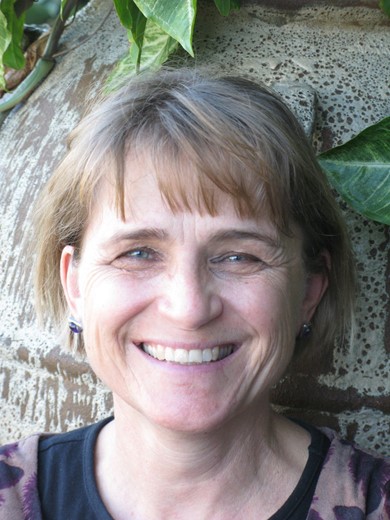 Kasia Kozlowska is a child and adolescent psychiatrist at The Children’s Hospital at Westmead, a research fellow at Westmead Institute of Medical Research, and clinical professor in the Disciplines Psychiatry and Child & Adolescent Health at the University of Sydney. In her clinical role she and her team run a multidisciplinary consultation-liaison team, a research program for children with functional neurological disorder, and a specialist program—the Mind-Body Program—for treatment of children disabled by functional neurological symptoms.
Kasia Kozlowska is a child and adolescent psychiatrist at The Children’s Hospital at Westmead, a research fellow at Westmead Institute of Medical Research, and clinical professor in the Disciplines Psychiatry and Child & Adolescent Health at the University of Sydney. In her clinical role she and her team run a multidisciplinary consultation-liaison team, a research program for children with functional neurological disorder, and a specialist program—the Mind-Body Program—for treatment of children disabled by functional neurological symptoms.
Lecture Description
This presentation begins with a description of a biopsychosocial model of paediatric FND and the role of stress system activation and dysregulation in paediatric FND. Different biological, psychological and social factors that contribute to the development and maintenance of this amplified stress response are described, followed by the treatment implications of this approach. Two clinical cases are then presented to illustrate how the biopsychosocial framework facilitates a holistic assessment, the construction of a working formulation, and the use of the formulation to guide the treatment intervention.
Although focused on paediatric FND, many of the principles and techniques described here can also be applied to adults, meaning that the presentation is likely to have broad practical appeal to FND clinicians.
Learning Objectives
The objectives of this presentation are for learners:
- to obtain knowledge about the role of cumulative stress in paediatric FND and how this can be understood from a biopsychosocial perspective
- to obtain knowledge about the application of biopsychosocial formulation and treatment in paediatric FND
Webinar
The webinar will be live on 25 January 2024 and is 90 minutes. After the live presentation, the webinar and the lectures will be available to view on demand during a 60 day period.
Thursday January 25, 2024 at 11:00 AM Eastern time (4:00 PM UTC)
Course directors Prof. Brown and Dr. Baslet and expert course faculty will review case examples that illustrate the application of different psychological approaches in FND. Attendees will be asked to send specific questions related to psychological treatment in FND or cases that pose a challenge. The panel will prioritize discussion of those cases/ questions. There will also be an opportunity to ask questions during the webinar.
